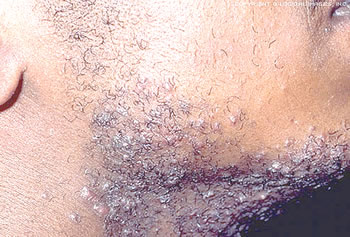

Scenario A
TAYO is a 13 years old JSS 3 student who has always been very aggressive since early childhood. He would kick, punch and bite anyone that refused to allow him to have his way. Very easily, other children would give in and let him have their toys or snacks, but he grew worse over time. He fought and bullied his peers and juniors and his instantaneous reaction to any real or perceived slight was to rain blows on whoever it was.
His parents often traded blame for his bad behaviour but were frequently clueless about what to do. His mother would openly cry and lament her frustrations whenever he fought outside or was reported from school. His mother appealed to him to stop disgracing her and the family name, but her appeals consistently fell on deaf ears. Until he was expelled for possessing and selling drugs in school.

Discussion
Aggression starts early in life, from early moments when a child doesn’t get what he/she wants or when denied of something by their parents. Sometimes they get so angry and may utter angry words such as “I hate you” out of frustration. They are simply lashing out and wanting to hurt their parents for not allowing them to enjoy what they want at that time. Children according to their developmental ages, want instant gratification of their wishes and the concept of delayed gratification is alien to them. Yet delayed gratification is a concept they must learn and imbibe to succeed in life.

Oftentimes, such aggressive tendencies are met with stronger versions of aggressive behaviours from adults – such as slaps or corporal punishment. Thus, they are cowed into submission, but the lesson learnt is that might is right and that the stronger person/adult has his or her way. Thus, they are socialized into aggressive patterns of behaviour as the only conflict resolution strategy.

What are the causes of childhood aggression?
Aggression during early childhood is a normal part of the growing process but it could also be a sign of an underlying psychological issue when it is persistent and problematic. Such children may be mirroring behaviour they see all around them – at home and in school or the community. For instance, a psychologist observed in a study, that aggression is like a contagious disease, as children with initially low levels of aggressive behaviours, became more aggressive when placed in an environment with highly aggressive children over time.
Children with aggressive behaviours may also be trying to hurt others because they are emotionally traumatized and hurting, eg from child abuse or neglect. And they may have behavioural problems such as conduct disorder that require treatment. Lastly, they may have flaws such as failing to read and understand the motives of other children properly (attribution error), they may be poor communicators or be socially awkward such that they lash out in anger and frustration, etc.
It is of utmost importance for parents to intervene early when children struggle with high levels of aggressive behaviours, and reach out to the necessary professionals for assistance if needed.
What are the signs to watch out for?
The common sign of aggression in children includes: Throwing temper tantrums; destroying and smashing things when upset; controlling behaviour using threats or violence; biting another person when upset; regularly making fun of other children to make them feel bad; excluding certain kids in play activities; significant difficulty calming down when upset; ignoring someone on purpose; hitting another person or an object, when angry; regular fights – with or without weapons; frustrations and difficulties communicating when they are upset or emotionally hurt; frequent tendency to lash out in retaliation for real or perceived slights etc.
Please note that nearly all children will exhibit one or more of these signs at some point. It is when they consistently exhibit many of these signs that we should get worried and re-strategize our engagement with the child, with a view to re-directing them.
What can parents and teachers do about aggressive children?
Children work best with structure and order. Parents should establish very early, that some things are unacceptable and consistently correct such behaviours. Discipline must not be compromised,rewards should be used to encourage good behaviour while withdrawal of privileges should discourage unwelcome behaviours.
Stay calm and explain to them why certain behaviours are inappropriate. If you lose your cool and become emotional and very upset, you are providing a model of behaviour for them to emulate – albeit an unintended one. Help them to reason about motives and attributions and then gently re-direct them by providing alternate explanations to them for the same scenario that has angered them.
Try to improve their communication, negotiation and problem-solving skills (conflict resolution). And if the problems persist, parents may benefit from parental management training and the child should see a mental health professional for expert evaluation.









